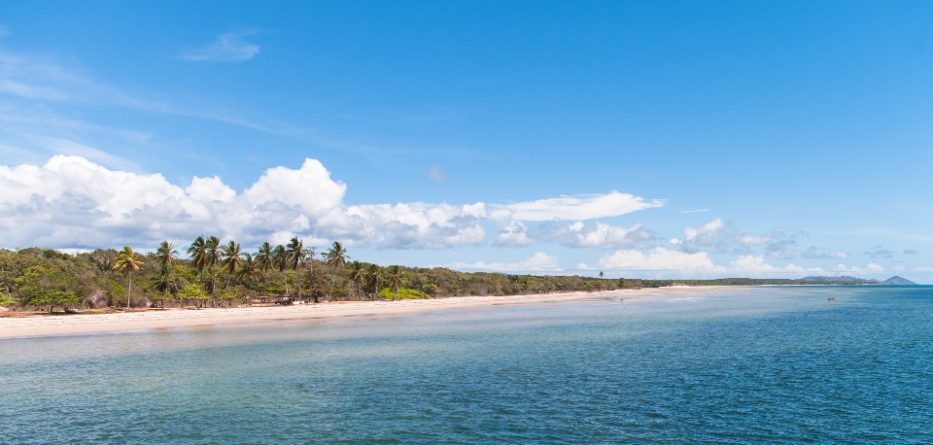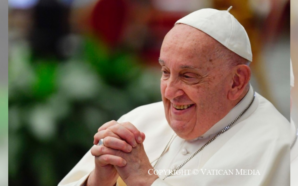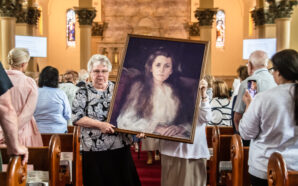Homily for the 1st Sunday of Advent
Readings: Jeremiah 33:14-16; Psalm 24(25):4-5,8-9,10,14; 1 Thessalonians 3:12-4:2; Luke 21:25-28,34-36
28 November 2021
It’s the first Sunday of Advent, the first day of the new liturgical year. We commence four weeks of preparation for Christmas. Like the prophet Jeremiah, we are hopeful of better things to come contemplating the vision of the Jesse Tree “with sprawling branches that culminate in the birth of Jesus Christ”[1].
Listen at https://soundcloud.com/frank-brennan-6/homily-281121
See, the days are coming – it is the Lord who speaks – when I am going to fulfil the promise I made to the House of Israel and the House of Judah:
“In those days and at that time,
I will make a virtuous Branch grow for David,
who shall practise honesty and integrity in the land.
In those days Judah shall be saved
and Israel shall dwell in confidence.
And this is the name the city will be called:
The-Lord-our-integrity.”
This promise of healing and restoration is “closely connected to the act of cleansing the stain of (the people’s) guilt and forgiving the sins and rebellion that they had committed against God”[2].
During the week, I listened online to a Federal Court judge determining the native title claim over a large tract of land in Cape York, North Queensland. The barrister for the Aboriginal claimants recalled the long struggle the Aboriginal leaders waged for the recognition of their rights to land and self-determination. He recalled a meeting of those leaders which took place on Palm Island almost 40 years ago. I was privileged to attend that meeting all those years ago. This was back in the bad old days when governments saw no need to listen to the elected Aboriginal leaders from remote reserve communities. The Queensland government had denied permission for the Aboriginal leaders to meet. The Queensland Minister said the Aboriginal leaders had no right to meet except with government approval. The Commonwealth government made some unctuous noises but they were unwilling to tread on the toes of the State government. The Aborigines were left to fend for themselves. The leaders of the major Queensland churches stepped in to provide the funding for the meeting. The Aboriginal leaders met and issued this statement:
‘We do not agree with the Minister’s statement that the action of the Chairman of the Working Party “in calling a meeting at Palm Island is not consistent with the purposes for which this group was nominated, or with the responsibilities of the Aboriginal Advisory Council”. We think that it is up to us when we meet and the Chairman of the Working Party has all the authority needed to call a meeting. We do not understand the Minister’s obstructive statement that “the Chairman had absolutely no authority to act in the way he did calling the Palm Island meeting”. We honestly believe that we are doing the job we were elected to do, to the best of our ability, for the benefit of our people.’[3]
The Aboriginal leaders then invited the ABC Nationwide crew to fly to Palm Island to cover the proceedings. This was on the eve of the 1982 Commonwealth Games when the international spotlight was on Queensland for its treatment of Aborigines on remote reserves. This was probably the first time ever when the voices of the elected Aboriginal leaders from remote communities were heard live in the lounge rooms of ordinary Australians the length and breadth of the country.
And here we were this week, 40 years later, with a court acknowledging the people’s rights to their traditional lands and with the voice of the people being heard in court and on the national airwaves. Handing down her determination of native title, the judge said: “European law and European government has brought great suffering and oppression to Aboriginal and Torres Strait Islander people and we are still a long way off setting that right. But getting this determination of native title for each of your groups is a necessary step, so that you can use European law for good purposes, and for outcomes that can improve the lives of your communities. Each of these determinations is valuable because it says to the world that despite the terrible history of colonisation, your law and your culture is here to stay.”[4]
After the court hearing, all parties then made statements to the media. How extraordinary to hear a Queensland government minister four decades after the Palm Island fiasco declaring: “[The] elders have fought for their lands and waters for decades and this marks another step forward in their pursuit of justice. The [Queensland] Government is committed to righting the wrongs of the past. We’re proud to stand with Aboriginal and Torres Strait Islanders as we continue on the Path to Treaty, truth-telling and reconciliation.”[5]
There are still many wretched aspects of life on remote Aboriginal communities, but the celebration outside the courtroom in Cairns this week was evocative of the Advent spirit with signs of honesty, integrity and justice in the land. Not all is right with our world. And not all will be right with our world this Christmas or any Christmas in the foreseeable future. But in the midst of the mess, complexity and injustice, there are signs of hope. After the court ruling in Cairns this week, one of the traditional owners said, “It’s one of those processes that take a lot of time, but I think it’s done justice to a lot of old people who are no longer with us. We will get to live healthily and more happily once we get back on Country again. To get back there with Native Title recognition, it’s so important spiritually and mentally. We will feel more at home now.”[6] This was one of those occasional wins for the vulnerable and the marginalised which points to the true significance of the coming of the Christ child at Christmas.
Today’s gospel from Luke speaks apocalyptically of those end times: “There will be signs in the sun and moon and stars; on earth nations in agony, bewildered by the clamour of the ocean and its waves; people dying of fear as they await what menaces the world, for the powers of heaven will be shaken.” Jesus never promised that such times would not come. In fact, he predicted them. But he tells his disciples and he tells us: “When these things begin to take place, stand erect, hold your heads high, because your liberation is near at hand.” He cautions that we are to watch ourselves lest our hearts be coarsened with the cares of life. How often do we witness people whose hearts shrivel and grow cold as a response to the woes of life and the world. This Advent we are commissioned: “Stay awake, praying at all times for the strength to survive all that is going to happen, and to stand with confidence before the Son of Man.”
We pray with the psalmist:
To you, O Lord, I lift my soul.
Lord, make me know your ways.
Lord, teach me your paths.
Make me walk in your truth, and teach me:
for you are God my saviour.
To you, O Lord, I lift my soul.
The Lord is good and upright.
He shows the path to those who stray,
He guides the humble in the right path,
He teaches his way to the poor.
To you, O Lord, I lift my soul.
[1] Juliana M Claasens, ‘Jeremiah’, in The Paulist Biblical Commentary, Paulist Press, 2018, p. 667 at p. 700
[2] Ibid
[3] Quoted in Frank Brennan, Land Rights Queensland Style, University of Queensland Press, 1992, p. 38
[4] See https://www.abc.net.au/news/2021-11-25/cape-york-handback-court-ruling/100649138
[5] See https://statements.qld.gov.au/statements/93920
[6] Ibid
Fr Frank Brennan SJ is the Rector of Newman College, Melbourne, and the former CEO of Catholic Social Services Australia (CSSA). He has been appointed a peritus at the Fifth Plenary Council of the Australian Catholic Church.








